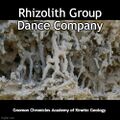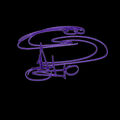Template:Selected anniversaries/June 10: Difference between revisions
No edit summary |
No edit summary |
||
| Line 27: | Line 27: | ||
||Antonio Luigi Gaudenzio Giuseppe Cremona (d. 10 June 1903) was an Italian mathematician. His life was devoted to the study of geometry and reforming advanced mathematical teaching in Italy. His reputation mainly rests on his Introduzione ad una teoria geometrica delle curve piane. He notably enriched our knowledge of algebraic curves and algebraic surfaces. | ||Antonio Luigi Gaudenzio Giuseppe Cremona (d. 10 June 1903) was an Italian mathematician. His life was devoted to the study of geometry and reforming advanced mathematical teaching in Italy. His reputation mainly rests on his Introduzione ad una teoria geometrica delle curve piane. He notably enriched our knowledge of algebraic curves and algebraic surfaces. | ||
||1909: Ludwig Roth born ... aerospace engineer who was the head of the Peenemünde Future Projects Office[3][4] which designed the Wasserfall[5] and created advanced rockets designs such as the A9/A10 ICBM. Roth arrived in New York under Operation Paperclip on November 16, 1945 via the SS Argentina[6] and served at Fort Bliss and Huntsville, Alabama. Pic. | |||
||1913 – Benjamin Shapira, German-Israeli biochemist and academic (d. 1993) | ||1913 – Benjamin Shapira, German-Israeli biochemist and academic (d. 1993) | ||
Revision as of 15:46, 7 October 2018
940: Mathematician and astronomer Abū al-Wafā' Būzjānī born. His Almagest will be widely read by medieval Arabic astronomers in the centuries after his death.
1571: New method for predicting lottery winners causes outbreak of crimes against mathematical constants.
1793: French Revolution: Following the arrests of Girondin leaders, the Jacobins gain control of the Committee of Public Safety installing the revolutionary dictatorship.
1836: Physicist and mathematician André-Marie Ampère dies. He was one of the founders of the science of classical electromagnetism, which he referred to as "electrodynamics".
1972: Rhizolith Group debuts new work based on the history of high-energy literature.
2018: Chromatographic analysis of Purple Racer reveals "at least five, perhaps as many as nine" previously unknown shades of violet.





